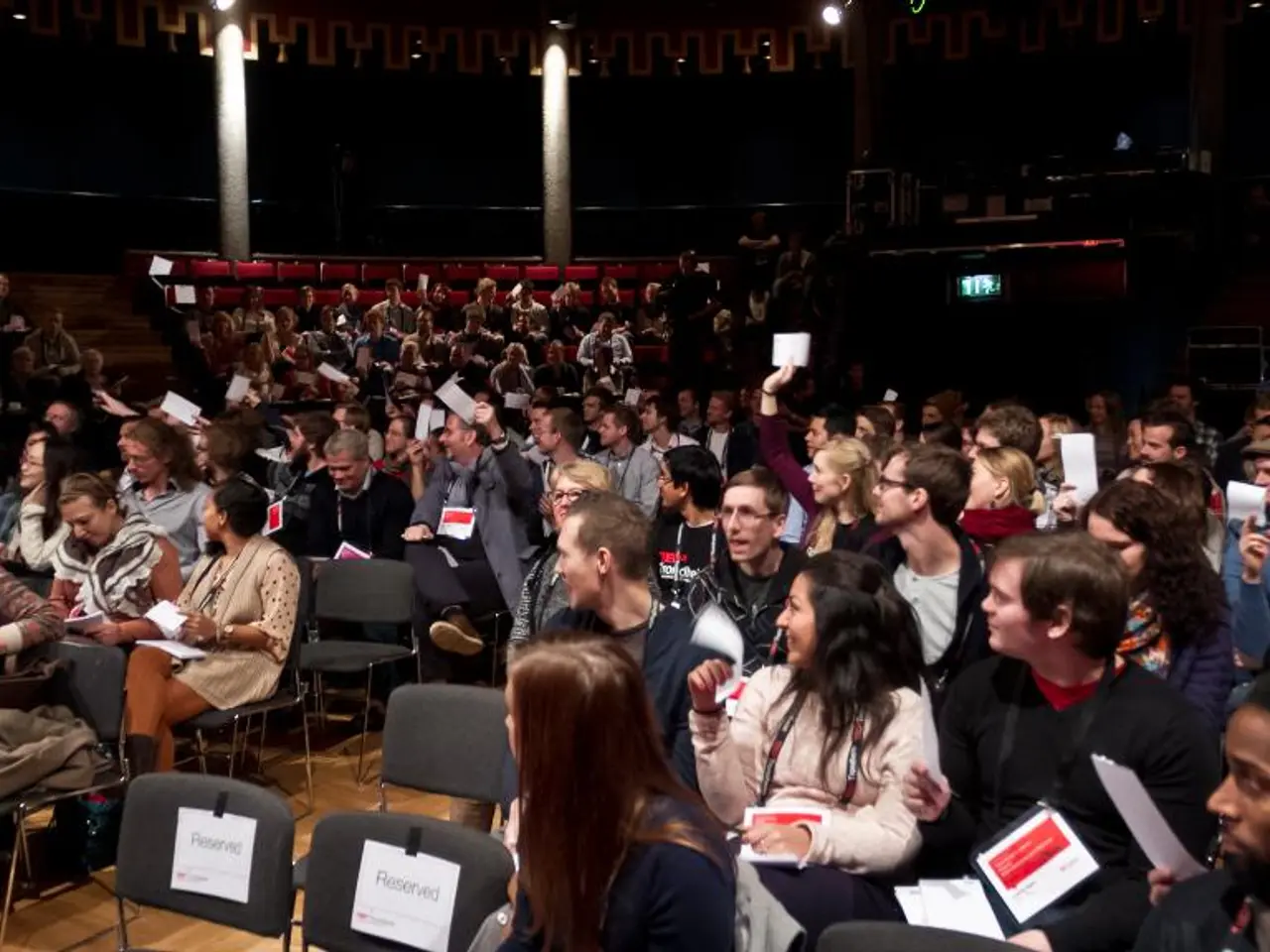Germany's AfD is recognized as a right-wing extremist political party.
In the heart of Europe, the political landscape of Germany is undergoing a significant debate. The Alternative for Germany (AfD), a political party that entered the Bundestag in 2017, has been a subject of controversy due to its stance on issues such as the Euro and immigration.
The AfD, known for its anti-Euro and anti-refugee sentiments, has been classified as far-right by the domestic intelligence agency in several German states. However, the party denies these labels and has even filed lawsuits against being labeled far-right and monitored, but these lawsuits have been dismissed by the courts.
The party's perceived xenophobic views and associations with far-right groups, which are known for promoting violence against foreigners and people with disabilities, have raised concerns among many politicians from other parties. Yet, submitting a ban request for the AfD is a complex matter.
In a true democracy, the importance of free media ensures that people are well-informed. This principle is crucial in the context of a potential ban request, as other politicians warn against submitting such a request due to insufficient evidence that the AfD is against the constitution.
The Federal Constitutional Court, one of the most important courts in Germany, located in Karlsruhe, would decide on a ban request. This court ensures adherence to the Basic Law, the constitution of Germany. The court can also review laws and, if necessary, require changes.
However, a previous attempt to ban the far-right NPD party was not successful. This precedent, combined with the complexities of the democratic process, has led some politicians to question the effectiveness of a ban request against the AfD.
Moreover, some argue that a ban request could potentially strengthen the AfD, giving it a martyr status and increasing its support. Democracy in a country allows the people to freely vote for their governors, with the majority deciding who governs, but also requires respect for the rights of the minority.
The Social Democratic Party (SPD), one of the major political parties in Germany, is considering filing an application for a party ban against the AfD at the Federal Constitutional Court. SPD leader Lars Klingbeil has advocated to clarify the chances of such an application based on findings from the Office for the Protection of the Constitution.
In the midst of this debate, it is essential to uphold the principles of democracy and respect for all citizens, while ensuring the safety and security of the nation. The future of the AfD, and the democratic process in Germany, remains to be seen.
Read also:
- Lu Shiow-yen's Challenging Position as Chair of the Chinese Nationalist Party (KMT) Under Scrutiny in Donovan's Analysis
- Large-scale SEA-EYE rescue operation in the central Mediterranean: 144 individuals saved
- Confidential Data Protection in Medical Field: Defending Vital Patient Data
- Medical professionals call for RKI to advocate for COVID-19 vaccine distribution








